The first ‘official’ England Women’s football match
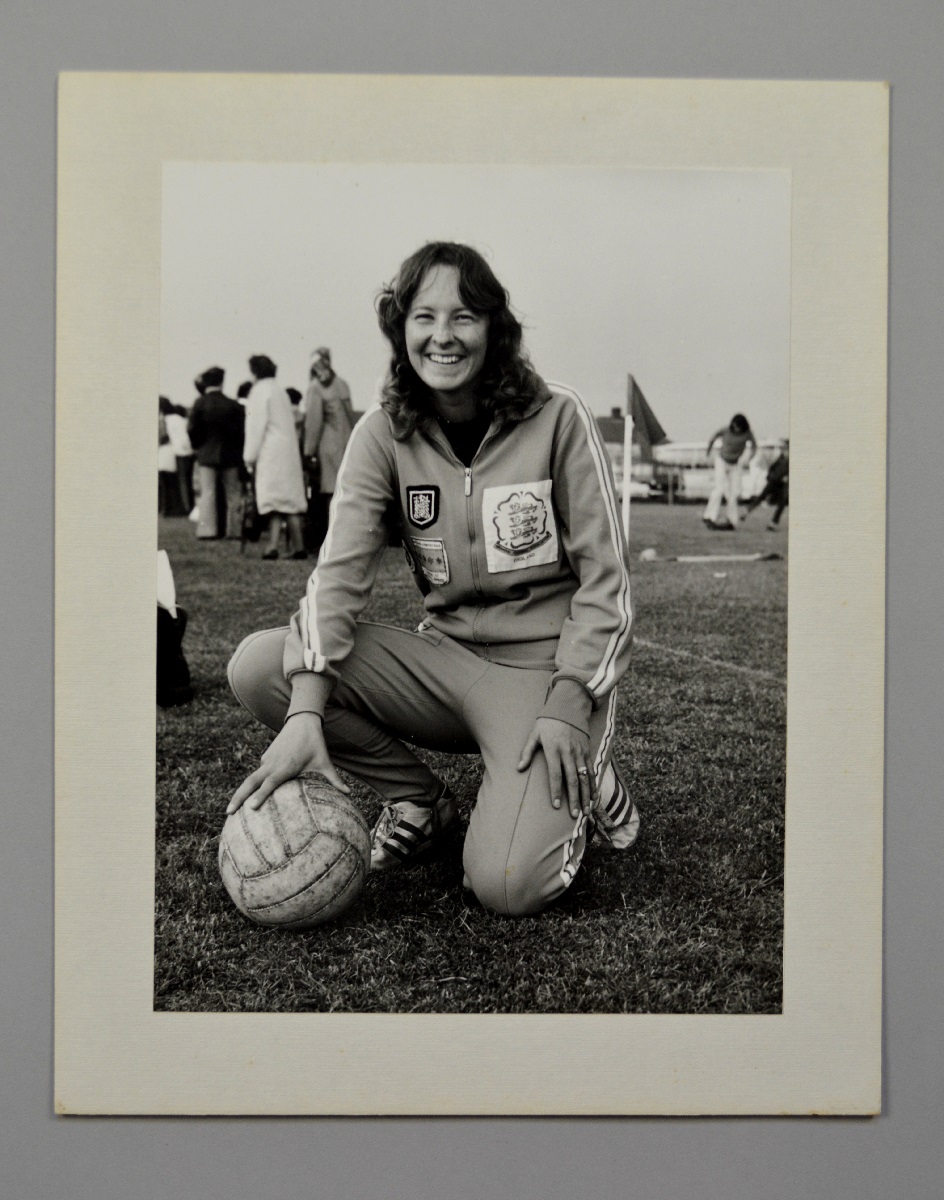
Today is the 50th anniversary of the first ‘official’ England Women’s football match.
This was a really significant moment in 1972. It was only a year since the Football Association had overturned their 1921 ban on women playing football on any affiliated FA grounds, which effectively killed the women’s game for 50 years. A new team, chosen through trials held by the Women’s Football Association, travelled to Scotland to play a newly formed Scottish team on 18 November 1972.
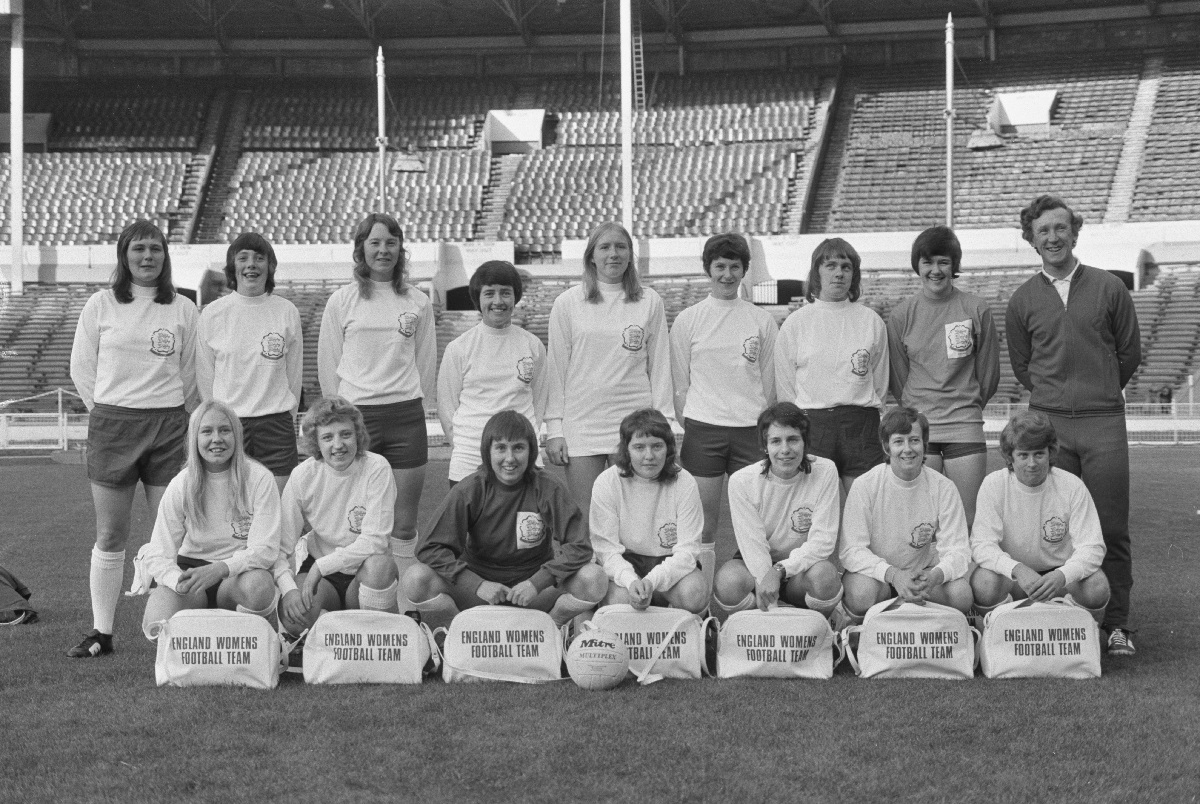
This week, local Lioness, Julia Brunton (née Manning), came to Brighton Museum to share her story of being in that very first official squad. Women such as Julia are one of the reasons we celebrated the England team lifting the UEFA Women’s EURO trophy at Wembley this summer. They played despite lack of facilities, lack of funding and ridicule from the media and the general public alike.
Julia remembers travelling up to Scotland in an ‘ancient coach’ with her new teammates
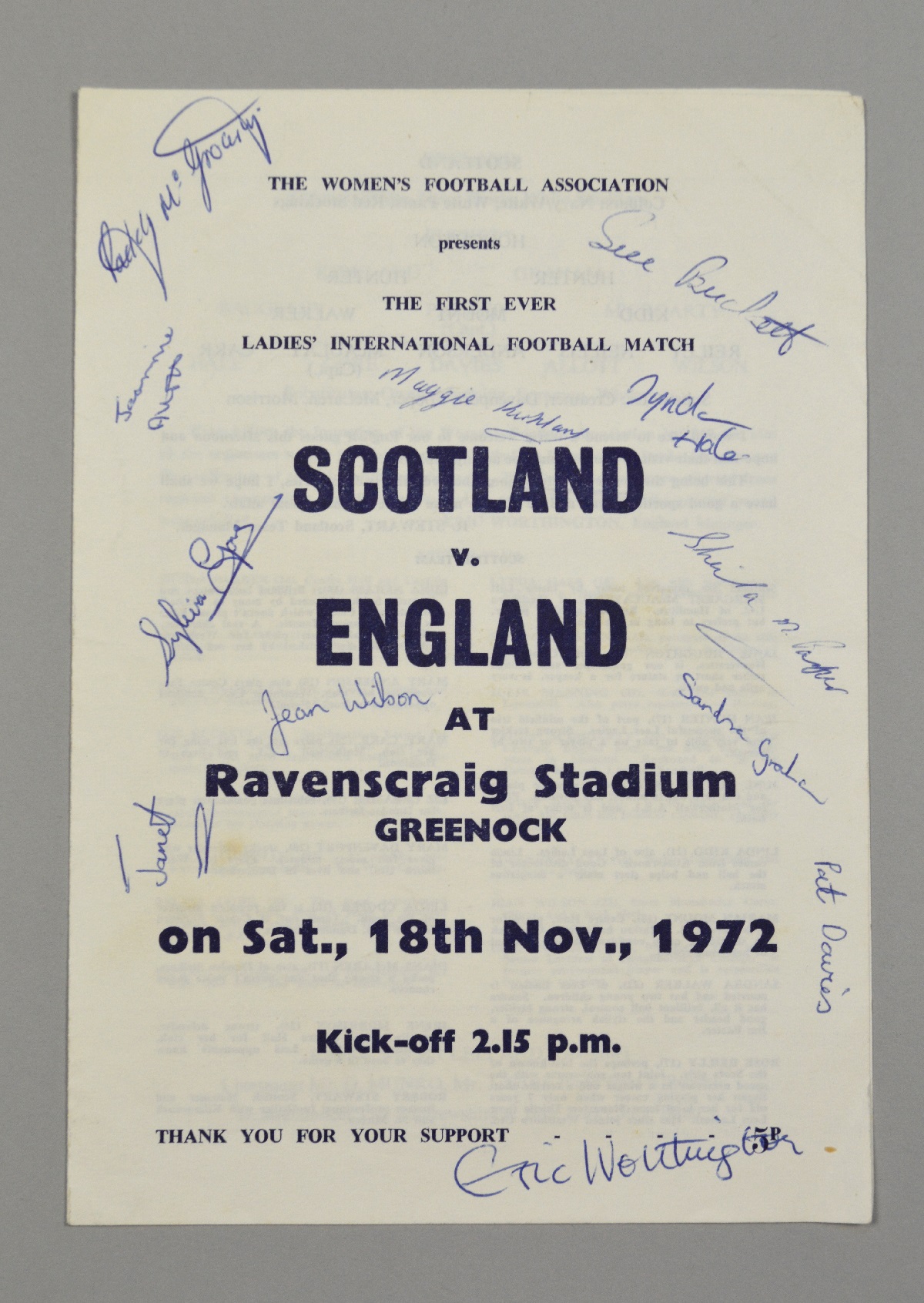
Despite the weather, there were plenty of goals and England beat Scotland 3-2 in front of a crowd of about 400 people.
Julia kept her programme from the game, signed for by all her teammates and the Manager, Eric Worthington. It was the start of women’s football internationals for the England team, although it would still be 12 years before an official competition was organised, in 1984, the European Championship.
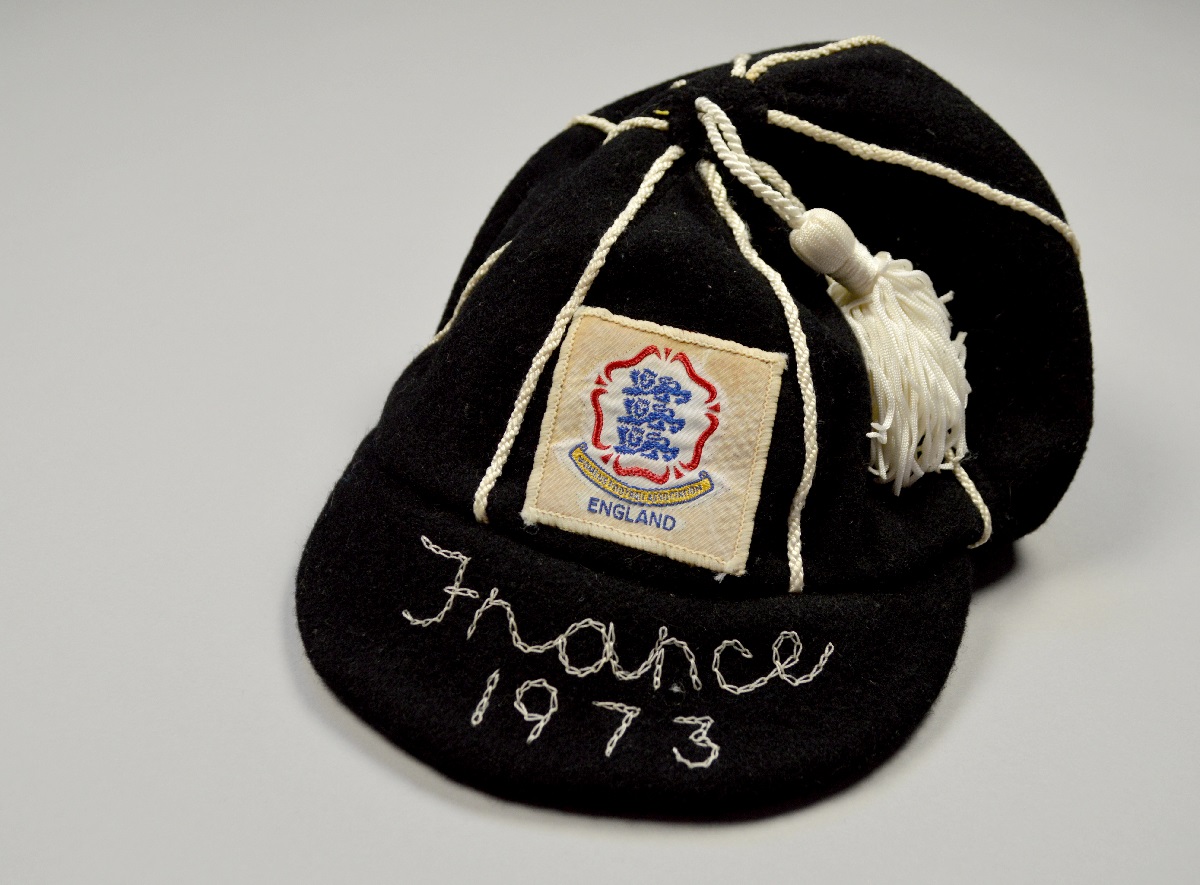
Julia was a substitute for the England/Scotland game and received her first Cap in the second international match, which was against France on 22 April 1973.
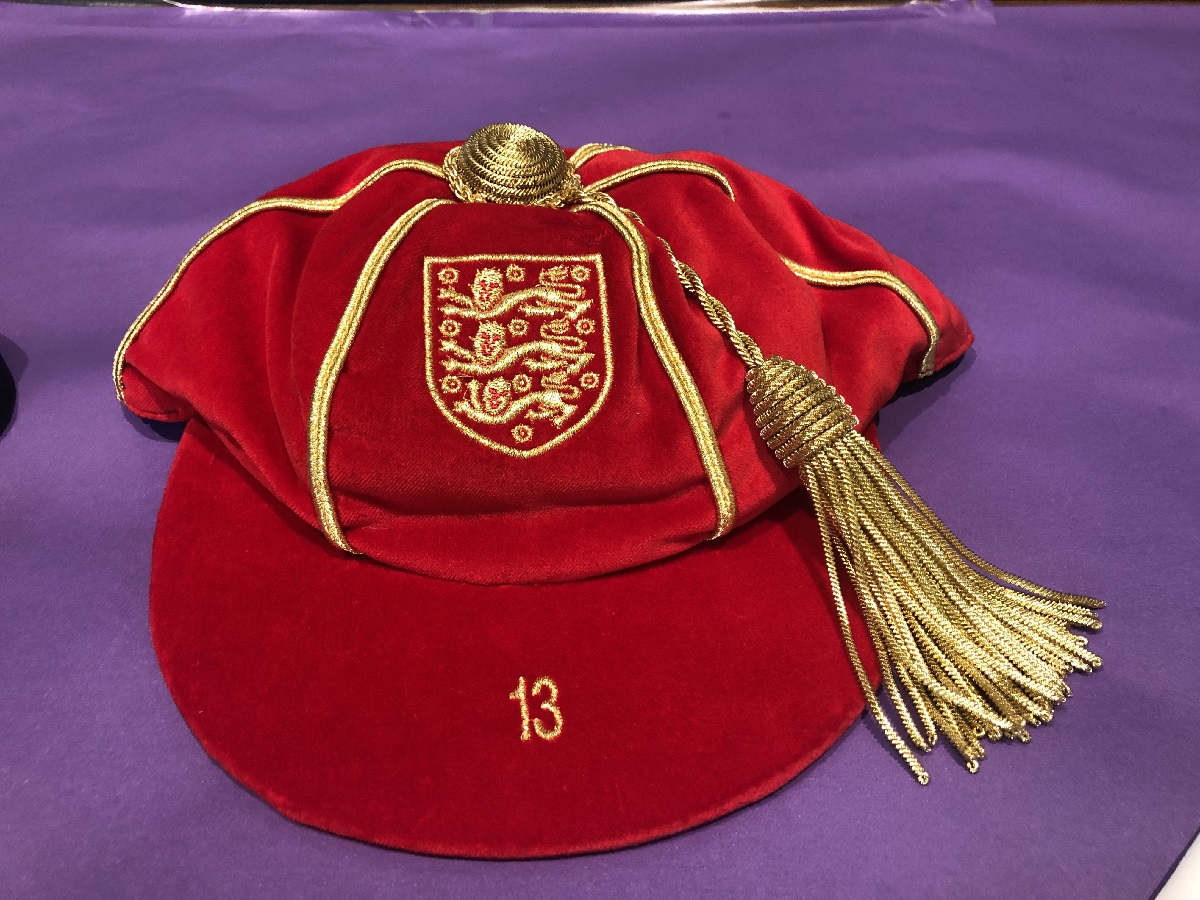
Despite the best efforts of the Women’s Football Association, which was a volunteer organisation, the women who played in the early teams have never felt recognised, appreciated, or respected by the Football Association. Until this year, when the FA invited that very first team to Wembley as special guests to watch England vs USA on 7 October.
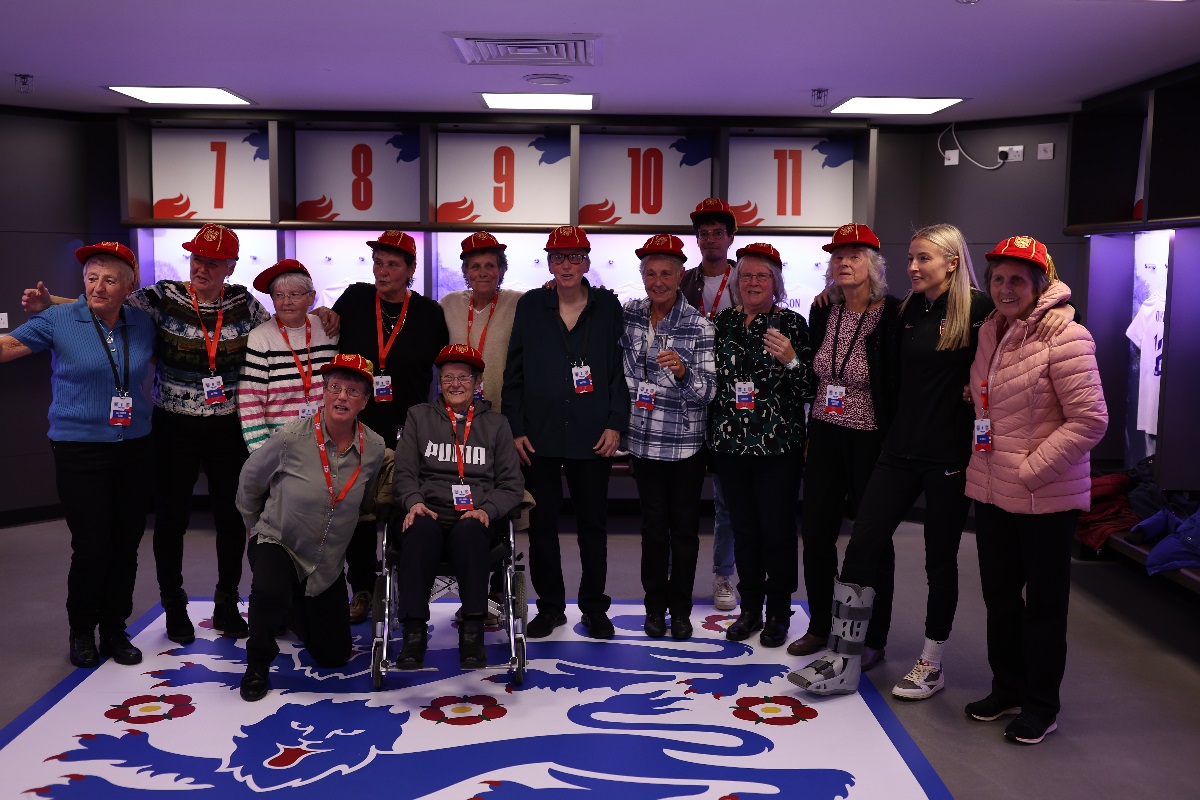
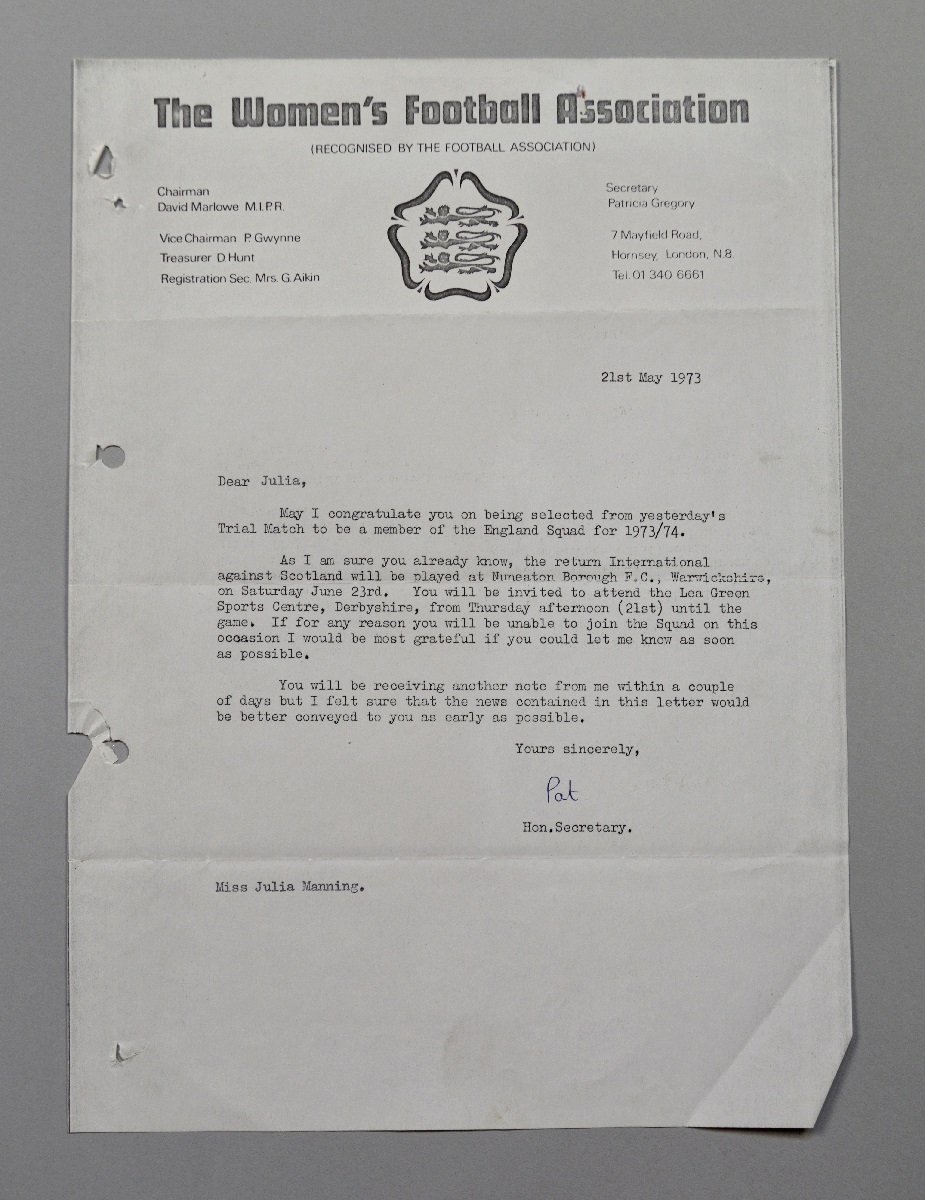
Julia was playing for Lowestoft Ladies team when she was chosen to be a Lioness in 1972. She moved to Brighton when she got married, having first researched Brighton teams. She played for Brighton and Hove Albion Supporters Ladies Club, and when it disbanded, went on to play for C&C Sports.

Julia’s story is one of many captured by the UEFA Women’s EURO 2022 Heritage Programme to recognise, highlight and celebrate untold histories of women’s football in England.
Thank you to the National Lottery Heritage Fund for their support in uncovering these stories.